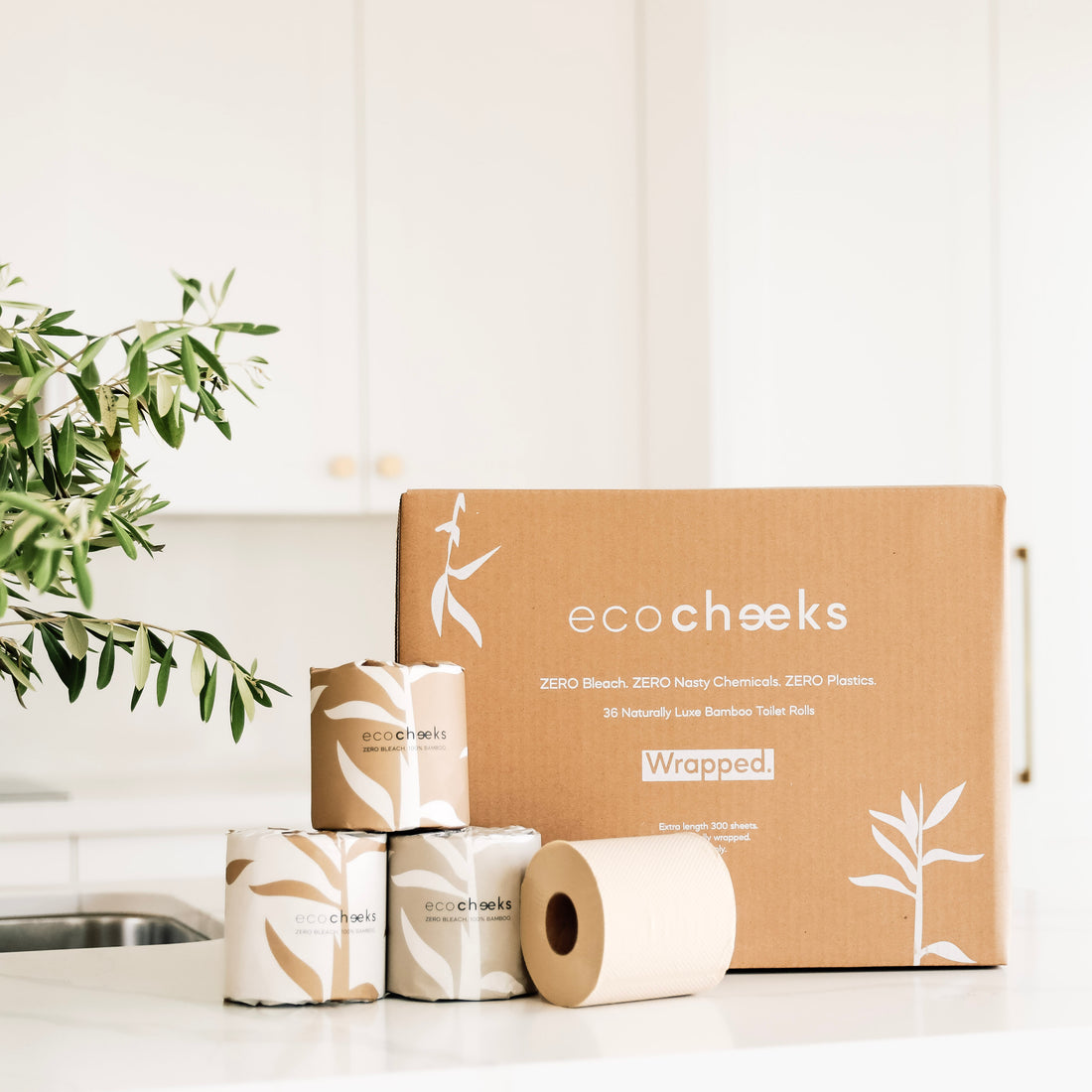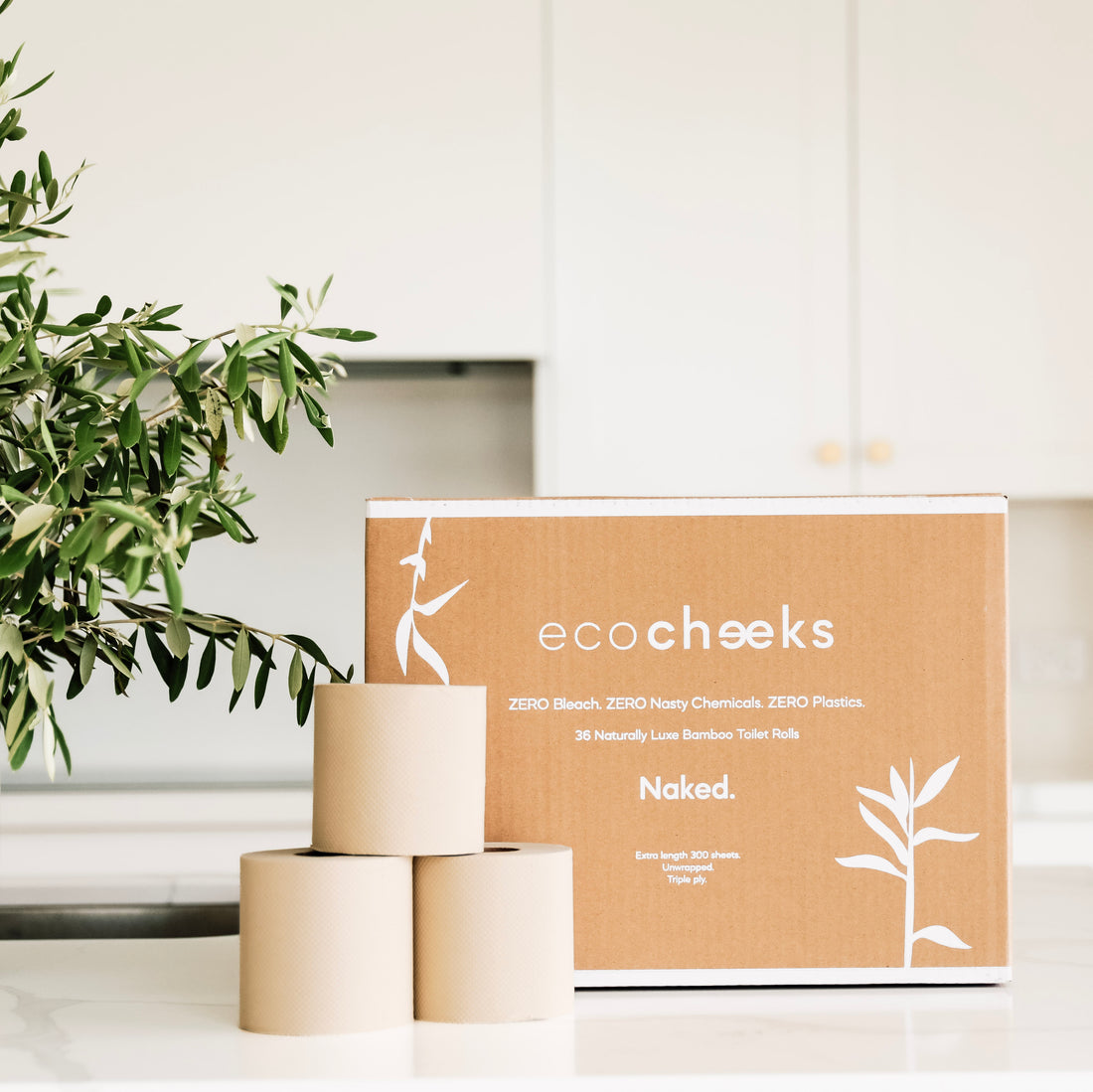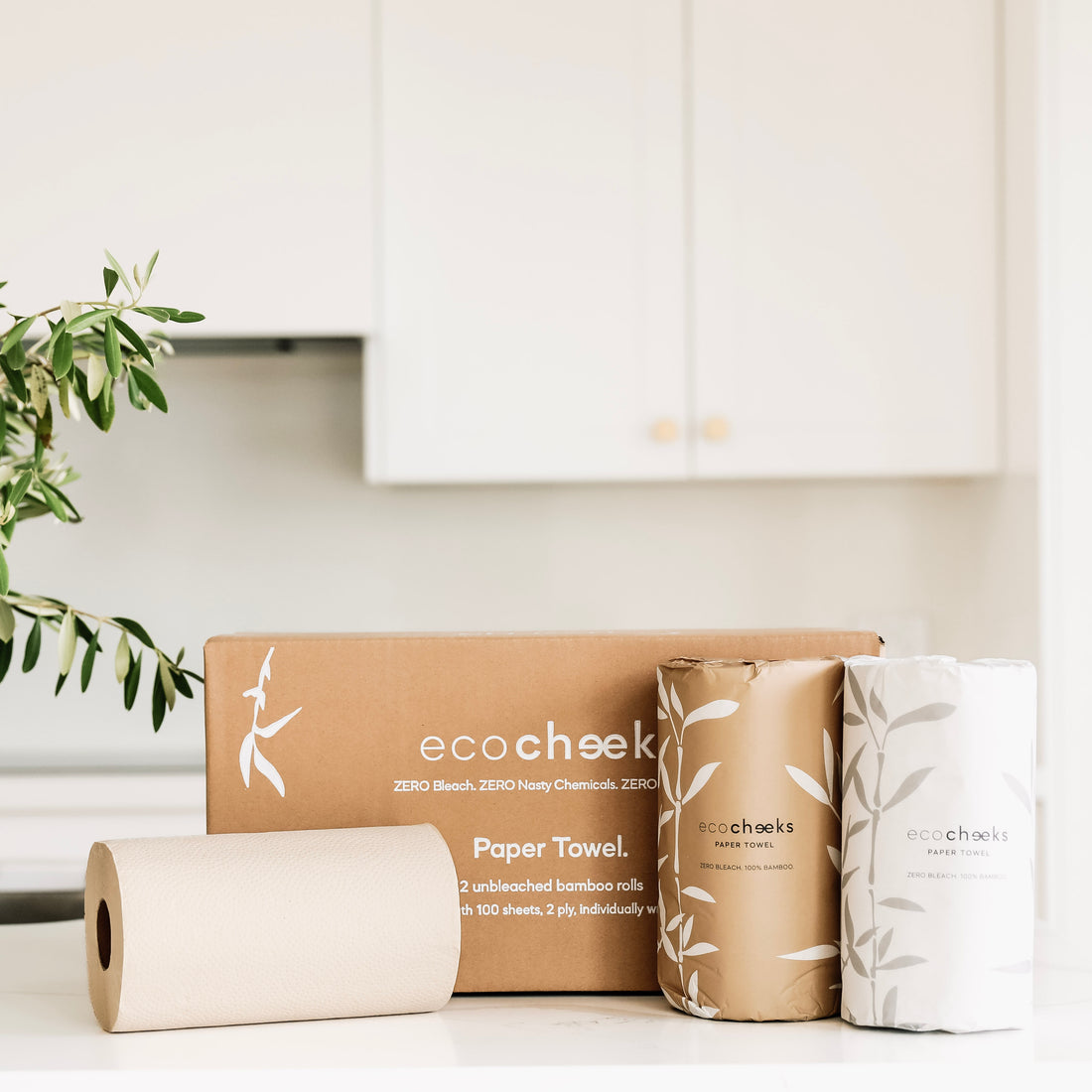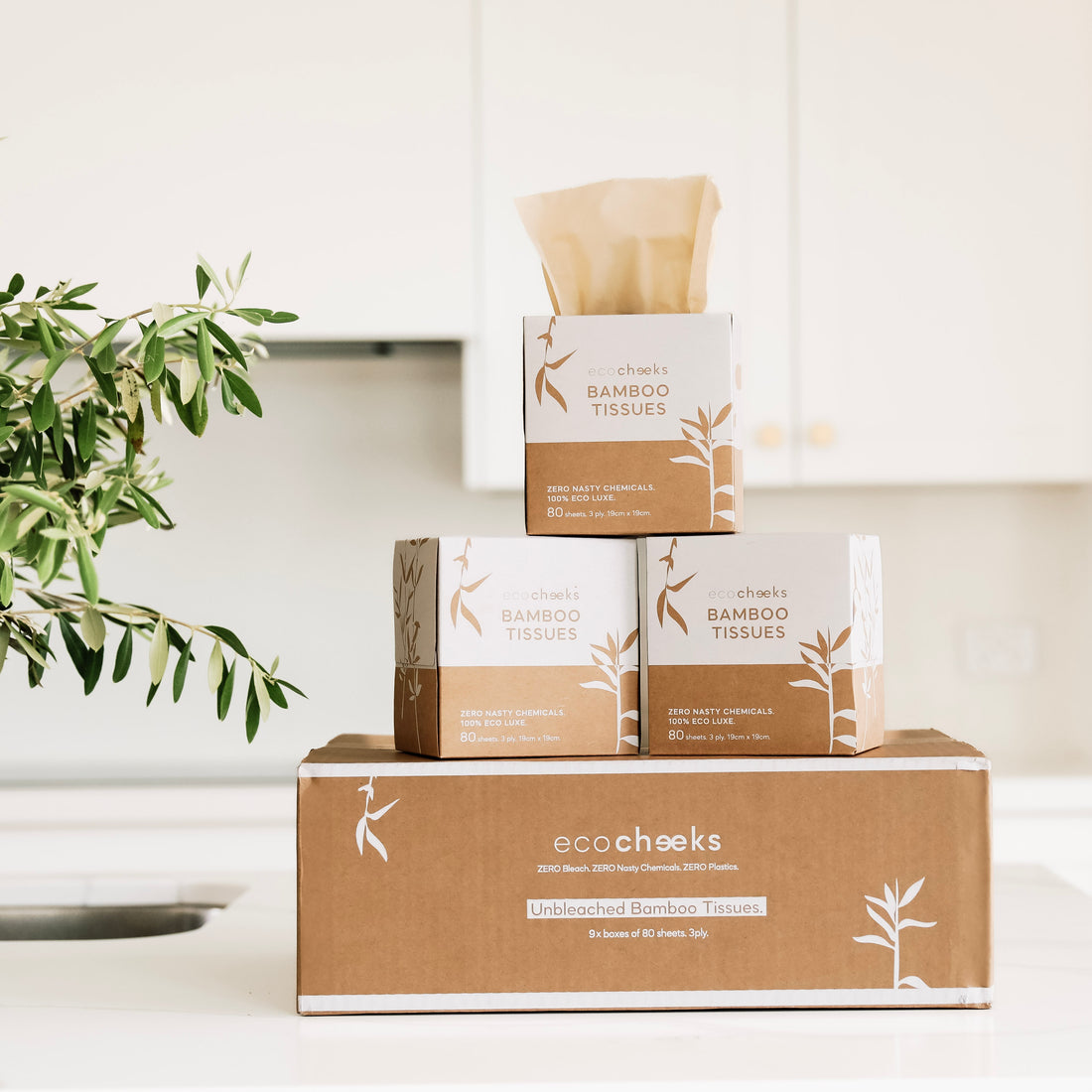Your bathroom should be a sanctuary—a place of relaxation, self-care, and maybe even some questionable shower karaoke. But if you’re stepping out of the shower with itchy, irritated skin, something in your bathroom routine might be the culprit.
If your skin often feels like it’s staging a protest—redness, dryness, itchiness, or even breakouts—your everyday products could be to blame. Let’s uncover the hidden irritants lurking in your bathroom and explore easy ways to create a gentler, non-toxic bathroom that’s safe for your sensitive skin.
Common Bathroom Irritants: What’s Making Your Skin Angry?
1. Harsh Soaps & Body Washes
Many commercial soaps and body washes are loaded with sulfates (like SLS or SLES), artificial fragrances, and alcohols—all of which can strip your skin’s natural oils, leaving it dry and irritated. Some products even claim to be 'moisturising' while actually containing ingredients that cause irritation over time.
Swap it for:
-
Fragrance-free, sulfate-free body washes
-
Natural, plant-based soaps with gentle ingredients like oatmeal, aloe vera, or shea butter
-
Handmade, cold-pressed soaps with minimal ingredients
2. Chemical-Laden Shampoos & Conditioners
Your shampoo isn’t just affecting your hair—it rinses down your body, too! Many shampoos contain parabens, synthetic fragrances, and preservatives that can cause skin reactions, especially for those with eczema or sensitive scalps. Even 'herbal' shampoos can sometimes sneak in harsh chemicals.

Swap it for:
-
Sulfate-free, paraben-free shampoos
-
Fragrance-free or naturally scented hair products
-
DIY hair rinses using apple cider vinegar for shine and scalp health
3. Fragrance (Perfume)
That signature scent might feel like a finishing touch to your outfit, but most mainstream perfumes and body sprays are loaded with synthetic chemicals—many of which aren’t disclosed on the label. These can include phthalates, which are known endocrine disruptors, and other irritants that can trigger headaches, allergies, or skin sensitivities.
Swap it for:
-
Perfume oils or solid perfumes made with essential oils and natural bases
-
Alcohol-free botanical mists with ingredients you can actually pronounce
-
A dab of pure essential oil (like lavender, rose or sandalwood) on pulse points
DIY blends using carrier oils (like jojoba) and your favourite essential oils
Bonus: You’ll smell amazing and know exactly what you’re putting on your skin!
4. Bleached Toilet Paper & Tissues
Toilet paper comes into contact with your most delicate areas, and if it's treated with chlorine bleach, derivatives of chlorine or loaded with fragrances and dyes, it could be causing irritation, itching, or even allergic reactions.
Swap it for:
-
Unbleached, bamboo-based toilet paper (like Eco Cheeks!)
-
Fragrance-free, hypoallergenic tissues
5. Chemical-Laden Cleaning Products
That lemon-scented bathroom cleaner may be doing more harm than good, with strong chemicals that can linger on surfaces and irritate your skin. If you’ve ever cleaned the bathroom and ended up with red hands or itchy skin, your cleaning products might be too harsh.
Swap it for:
-
DIY cleaning sprays made with vinegar and essential oils
-
Plant-based, non-toxic bathroom cleaners
-
Microfibre cloths that clean effectively without chemicals
6. Fabric Softeners & Laundry Detergents
If your towels, bath mat, or even that fluffy toilet seat cover are washed in conventional detergents and fabric softeners, they could be holding onto more than just softness. Many popular laundry products contain harsh chemicals, synthetic fragrances, artificial dyes, and preservatives that cling to fabrics and transfer to your skin—especially in warm, steamy bathrooms.
Swap it for:
-
Fragrance-free or naturally scented, hypoallergenic laundry detergents
-
White vinegar as a natural, effective fabric softener
-
Wool dryer balls to fluff and soften without the chemicals
-
Bicarb soda (baking soda) for odour-neutralising power in the wash

Extra Tips for a Low-Tox Laundry Routine:
-
Wash new towels and linens before first use to remove chemical residues
-
Avoid “scent boosters” and heavily fragranced sachets in cupboards or linen drawers
-
Air dry in the sun when you can—nature’s original disinfectant!
-
Avoid ‘antibacterial’ soaps, as they often contain harsh chemicals like triclosan.
7. Improve Bathroom Air Quality
-
Ditch aerosol sprays and use essential oil diffusers instead.
-
Keep a small plant to naturally purify the air.
-
Open windows regularly to let fresh air circulate and prevent mould buildup.
8. Opt for Soft, Natural Fibres
-
Choose bamboo or organic cotton towels and bath mats—synthetic fibres can trap bacteria and irritate the skin.
-
If you have sensitive skin, avoid wool or rough-textured fabrics that can cause friction.
9. Use Gentle Laundry Detergents
-
Your towels and bathrobes touch your skin daily, so wash them in fragrance-free, chemical-free detergent.
-
Skip fabric softeners and dryer sheets (they often contain skin-irritating chemicals!).
-
Wash new towels before use to remove factory residues.
10. DIY It
Creating a non-toxic bathroom doesn’t mean sacrificing freshness or cleanliness. Try these easy DIY swaps for a more skin-friendly bathroom:
-
Natural Air Freshener: Mix water, witch hazel, and a few drops of lavender or lemon essential oil in a spray bottle.
-
DIY Shower Cleaner: Sprinkle baking soda on surfaces, spritz with vinegar, and let it bubble before scrubbing.
-
Homemade Hand Soap: Blend Castile soap with a few drops of tea tree oil for an antibacterial touch.
11. Filter Your Water
If your skin is still irritated, consider a shower filter. Hard water can contain chlorine, heavy metals, and minerals that strip your skin’s natural moisture barrier.
Bonus Tip: After showering, apply a natural, fragrance-free moisturiser while your skin is still damp to lock in hydration!
Final Thoughts: Keep It Simple, Keep It Kind
Your skin deserves the best—no harsh chemicals, no irritants, just gentle, nourishing care. By making a few easy swaps of skin-friendly products in your bathroom routine, you can create a soothing, skin-friendly bathroom that helps keep irritations at bay.

Sensitive skin doesn’t have to mean constant discomfort. With a little extra attention to ingredients and materials, your bathroom can be transformed into a true haven of comfort—no toxins required!
Have you made the switch to a gentler, more skin-friendly bathroom? Share your go-to sensitive skin hacks in the comments!








